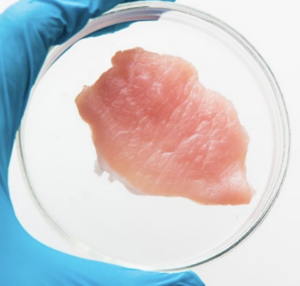We are on a mission to help our customers produce great food with a low carbon footprint. The transition into plant-based protein is one of the key ways we can help reduce food production’s environmental impact.
Today, nearly one in four consumers eat meat alternatives daily; some name health benefits while others note decreased environmental impact as the main drivers of their protein choices. Milk alternatives have also soared in popularity.
With 30 years of experience in processing meat substitutes, we are well-positioned to assist our customers succeed in this growing market. Many of our solutions work equally well for plant-based products as they do for meat or dairy products. In other cases, we work closely with our customers to develop customized solutions to help them scale their production of plant-based proteins, and other meat alternatives.

Plant-based Proteins
Even though plant-based products have been available on the market for many years now, it is not until recent years that the segment has boomed. The increase is driven by a strong health and sustainability trend among consumers, that is expected to continue at an even higher pace.
In 2030, the global market for plant-based substitutes is estimated to reach $85 billion (USD), while the demand for beef and dairy products will shrink by 80-90 per cent by 2035¹. During the pandemic, the sales of plant-based alternatives to animal-derived food increased significantly².
However, developing a competitive product can be a challenge. What is the consumer looking for, and what motivates the choice of one product over another?
To achieve tastes and textures that will appeal to consumers, out experts at JBT’s Food Technology Centers are ready to offer practical advice. Systems such as the Formcook contact and combi cookers and Stein, Double D ovens and grills, provide effective solutions that seal the natural flavors inside your product.
JBT’s Spiral, Impingement and IQF (individual quick freezing) solutions will also ensure there is no loss of quality, volume or taste during the freezing process.
Download our ESG Report Download our Future Plant-based Trends Report
Partners in Plant-Based Protein
“Quorn is a mycoprotein-based meat substitute that has seen massive growth since its launch in 1985. We’ve been proud to partner with the creators of Quorn, Marlow Foods, by providing the training, support, and high-quality equipment they need to keep production lines running smoothly and safely. We also helped this valued customer be successful in reaching their energy goals.
“JBT has helped us identify and develop solutions, in line with our sustainability goals, around the most efficient way to run our chillers, steamers, and freezers.”
Mark Anderson
Chief Engineer, Marlow Food’s Stokesley site, United Kingdom
Cell-Based Meat Solutions
We supply cell-based meat and seafood solutions to help customers scale production of this ethically sourced food in an environment that meets the stringent sanitary demands of the biopharmaceutical industry. We offer:
- Our expertise and equipment for robust media preparation in a sterile environment, which provides the nutrients to grow the cells
- State-of-the-art bioreactors where cells are mixed with the media and cultivated
- A variety of solutions to enhance flavor and texture profiles

World’s First Cultured Meat Research and Production Center
Livestock production is a major contributor to GHG emissions, water consumption, and pollution, as well as soil erosion. It represents 35%-40% of all global methane emissions and 55% of U.S. water use. One of our customers is innovating to address this massive problem with the world’s first dedicated cultured meat research and production center. The facility, which utilizes a variety of JBT equipment and process control technology, is designed to grow real meat from animal cells without raising livestock. With capabilities to produce any kind of meat, poultry, or seafood, the new facility has a total capacity of up to 400,000 pounds of meat per year.
References:
-
- Santo Raychel E., Kim Brent F., Goldman Sarah E., Dutkiewicz Jan, Biehl Erin M. B., Bloem Martin W., Neff Roni A., Nachman Keeve E. (2020), Considering Plant-based Meat Substitutes and Cell-Based Meats: A Public Health and Food Systems Perspective, Frontiers in Sustainable Food Systems, 4: 134. DOI: 10.3389/fsufs.2020.00134.
- Euromonitor International (2019), Driving Forces Behind Plant-based Diets: Climate Concern and Meat Reduction, Passport.


